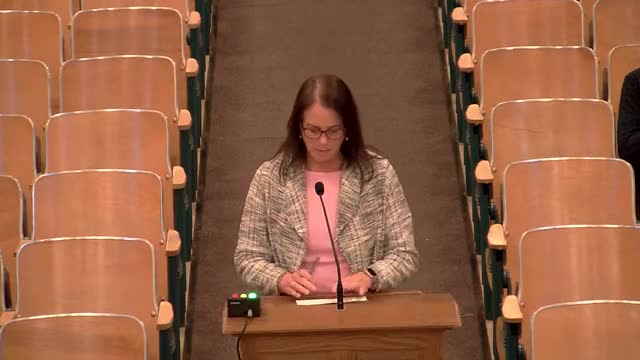NAEP results: MPS fourth-grade reading shows decline; board hears national and district context
Get AI-powered insights, summaries, and transcripts
Subscribe
Summary
Milwaukee Public Schools presented NAEP 2024 results showing significant declines in fourth-grade reading compared with 2019 and 2022; administrators and researchers urged continued focus on attendance, early literacy and curriculum alignment as long-term remedies.
MPS research and assessment staff presented the districtresults from the 2024 National Assessment of Educational Progress (NAEP) and placed them in state and national context.
Dr. Natalie Collins (Director of Research, Assessment and Data) and Bob Laderman (Manager of Assessment and Data) told the committee that while Wisconsinas a state showed no statistically significant change overall from 2022 to 2024 in most NAEP measures, MPS shows a mixed pattern. Analyses presented by the district showed: - No significant change in grade 4 and grade 8 math or grade 8 reading between 2022 and 2024, but a statistically significant decline in grade 4 reading (average scale score and the 25th percentile), indicating the gap widened at the lower end of the distribution. - Longer-term comparisons show grade 4 and grade 8 math and grade 4 reading are significantly lower than pre-pandemic levels in 2019 and lower than the district's 2009 results in some measures. - Attendance was described as strongly associated with NAEP performance: Laderman said students missing as few as three days within a month had significantly lower reading scores than students with no absences.
The district emphasized that many reforms and curriculum adoptions are recent and their effects will not yet be visible in NAEP 2024. Administration noted districtwide adoption of new reading and math materials and professional development (LETRS and other initiatives) that are intended to affect future assessment results. The presenters also highlighted subgroup patterns and said some improvements were seen among English learners in eighth-grade reading.
Committee members and community speakers emphasized the need to prioritize early literacy, attendance interventions and targeted supports for historically underserved students. The committee asked for continued monitoring and to use NAEP as one of multiple data sources to evaluate long-term effects of curriculum, staffing and attendance strategies.
Quentin Klabon, a community member, urged the board to use released NAEP items and answer patterns to focus work on foundational skills. Administrators said they would continue to analyze the released items and to report on next steps.
